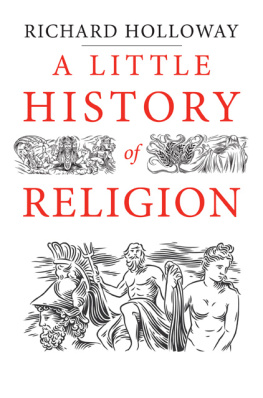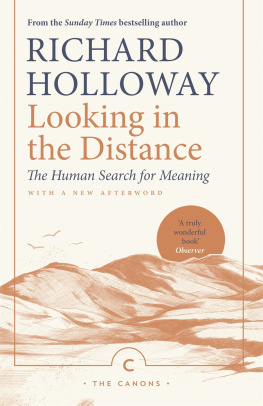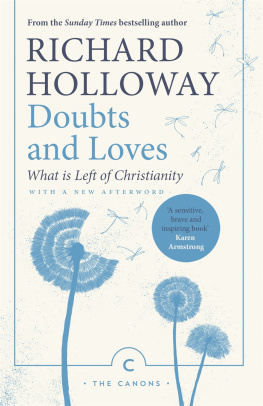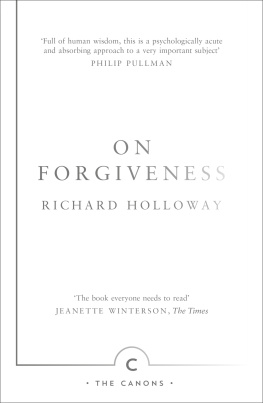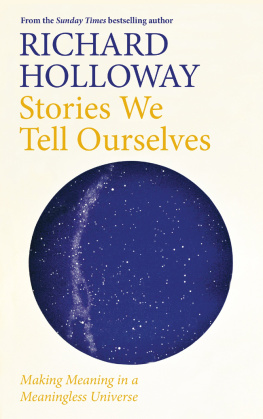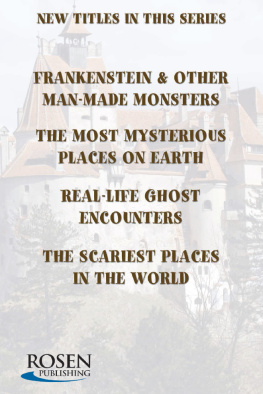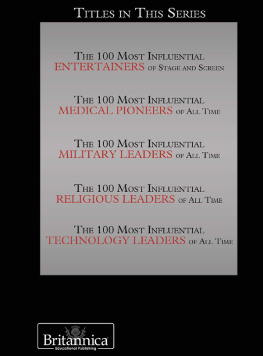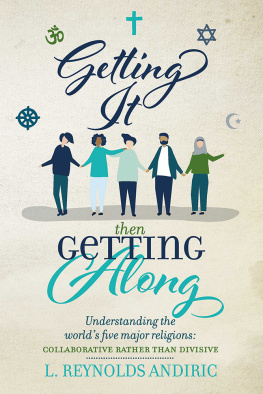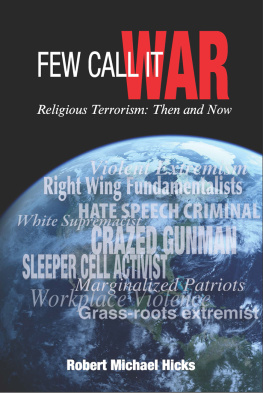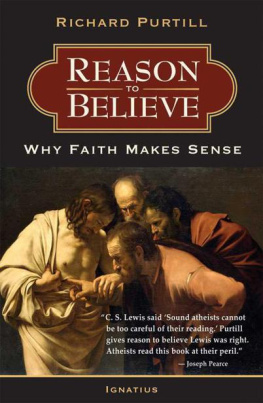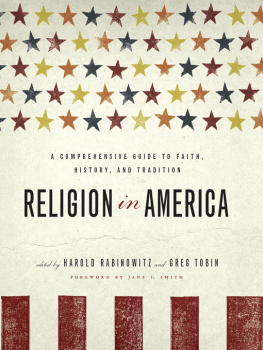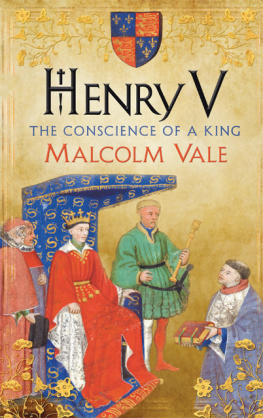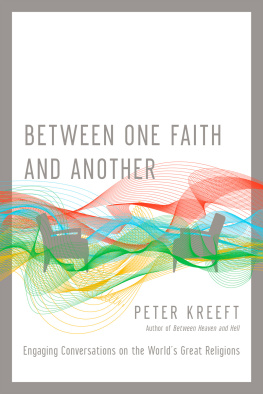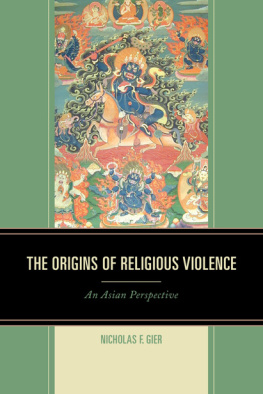A LITTLE HISTORY OF RELIGION
Also by Richard Holloway
Let God Arise (1972)
New Vision of Glory (1974)
A New Heaven (1979)
Beyond Belief (1981)
Signs of Glory (1982)
The Killing (1984)
The Anglican Tradition (ed.) (1984)
Paradoxes of Christian Faith and Life (1984)
The Sidelong Glance (1985)
The Way of the Cross (1986)
Seven to Flee, Seven to Follow (1986)
Crossfire: Faith and Doubt in an Age of Certainty (1988)
The Divine Risk (ed.) (1990)
Another Country, Another King (1991)
Who Needs Feminism? (ed.) (1991)
Anger, Sex, Doubt and Death (1992)
The Stranger in the Wings (1994)
Churches and How to Survive Them (1994)
Behold Your King (1995)
Limping Towards the Sunrise (1996)
Dancing on the Edge (1997)
Godless Morality: Keeping Religion out of Ethics (1999)
Doubts and Loves: What is Left of Christianity (2001)
On Forgiveness: How Can We Forgive the Unforgivable? (2002)
Looking in the Distance: The Human Search for Meaning (2004)
How to Read the Bible (2006)
Between the Monster and the Saint: Reflections on the Human Condition (2008)
Leaving Alexandria: A Memoir of Faith and Doubt (2012)

Copyright 2016 Richard Holloway
All rights reserved. This book may not be reproduced in whole or in part, in any form (beyond that copying permitted by Sections 107 and 108 of the U.S. Copyright Law and except by reviewers for the public press) without written permission from the publishers.
For information about this and other Yale University Press publications, please contact:
U.S. Office:
Europe Office:
Set in Minion Pro by IDSUK (DataConnection) Ltd
Printed in Great Britain by TJ International Ltd, Padstow, Cornwall
Library of Congress Cataloging-in-Publication Data
Names: Holloway, Richard, 1933- author.
Title: A little history of religion / Richard Holloway.
Description: New Haven : Yale University Press, [2016]
LCCN 2016013232 | ISBN 9780300208832 (c1 : alk. paper)
LCSH: Religions. | ReligionHistory.
Classification: LCC BL80.3 .H65 2016 | DDC 200.9dc23
LC record available at http://lccn.loc.gov/2016013232
A catalogue record for this book is available from the British Library.
10 9 8 7 6 5 4 3 2 1
Nick and Alice
With love
Contents
CHAPTER 1
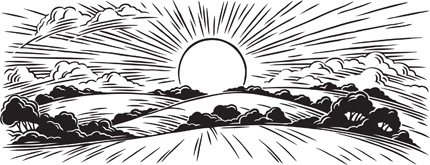
Is Anybody There?
W hat is religion? And where does it come from? Religion comes from the mind of the human animal, so it comes from us. The other animals on earth dont seem to need a religion. And as far as we can tell they havent developed any. Thats because they are more at one with their lives than we are. They act instinctively. They go with the flow of existence without thinking about it all the time. The human animal has lost the ability to do that. Our brains have developed in a way that makes us self-conscious. We are interested in ourselves. We cant help wondering about things. We cant help thinking.
And the biggest thing we think about is the universe itself and where it came from. Is there somebody out there who made it? The shorthand word we use for this possible somebody or something is God, theos in Greek. Someone who thinks there is a god out there is called a theist. Someone who thinks theres nobody out there and were on our own in the universe is called an atheist. And the study of the god and what it wants from us is called theology. The other big question we cant help asking ourselves is what happens to us after death. When we die, is that it or is there anything else to come? If there is something else, what will it be like?
What we call religion was our first crack at answering these questions. Its answer to the first question was simple. The universe was created by a power beyond itself that some call God, that continues to be interested and involved in what it has created. The individual religions all offer different versions of what the power called God is like and what it wants from us, but they all believe in its existence in some form or other. They tell us we are not alone in the universe. Beyond us there are other realities, other dimensions. We call them supernatural because they are outside the natural world, the world immediately available to our senses.
If religions most important belief is the existence of a reality beyond this world that we call God, what prompted the belief and when did it start? It began ages ago. In fact, there doesnt seem to have been a time when human beings didnt believe in the existence of a supernatural world beyond this one. And wondering about what happened to people after they died may have been what started it off. All animals die, but unlike the others, humans dont leave their dead to decompose where they drop. As far back as we can follow their traces, humans seem to have given their dead funerals. And how they planned them tells us something about their earliest beliefs.
Of course, this is not to say that other animals dont mourn their dead companions. There is plenty of evidence that many of them do. In Edinburgh there is a famous statue of a little dog called Greyfriars Bobby that testifies to the grief animals feel when they lose someone they are attached to. Bobby died in 1872 after spending the last fourteen years of his life lying on the grave of his dead master, John Gray. There is no doubt that Bobby missed his friend, but it was John Grays human family who gave him a proper funeral and laid him to rest in Greyfriars Kirkyard. And in burying him they performed one of the most distinctive human acts. So what prompted humans to start burying their dead?
The most obvious thing we notice about the dead is that something that used to happen in them has stopped happening. They no longer breathe. It was a small step to associate the act of breathing with the idea of something dwelling within yet separate from the physical body that gave it life. The Greek word for it was psyche, the Latin spiritus, both from verbs meaning to breathe or blow. A spirit or soul was what made a body live and breathe. It inhabited the body for a time. And when the body died it departed. But where did it go? One explanation was that it went back to the world beyond, the spirit world, the flipside of the one we inhabit on earth.
What we discover of early funeral rites supports that view, though all our distant forebears left us are silent traces of what they might have been thinking. Writing hadnt been invented, so they couldnt leave their thoughts or describe their beliefs in a form we can read today. But they did leave us clues about what they were thinking. So lets start examining them. To find them we have to go back thousands of years BCE , a term that needs an explanation before we move on.
It makes sense to have a global calendar or way of dating when things happened in the past. The one we use now was devised by Christianity in the sixth century CE , showing just how influential religion has been in our history. For thousands of years the Catholic Church was one of the great powers on earth, so powerful it even fixed the calendar the world still uses. The pivotal event was the birth of its founder, Jesus Christ. His birth was Year One. Anything that happened before it was BC or Before Christ. Anything that came after it was AD or
Next page
